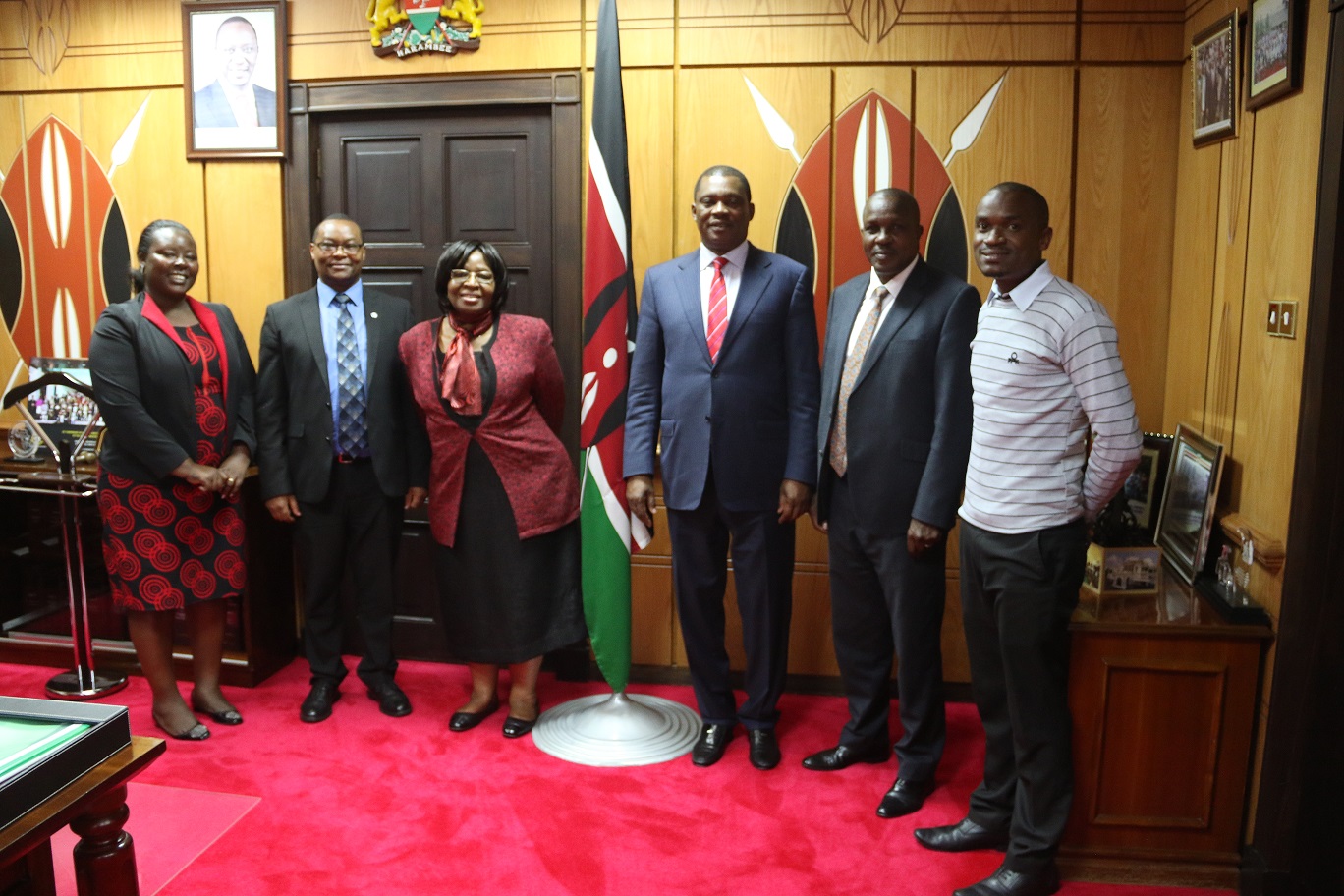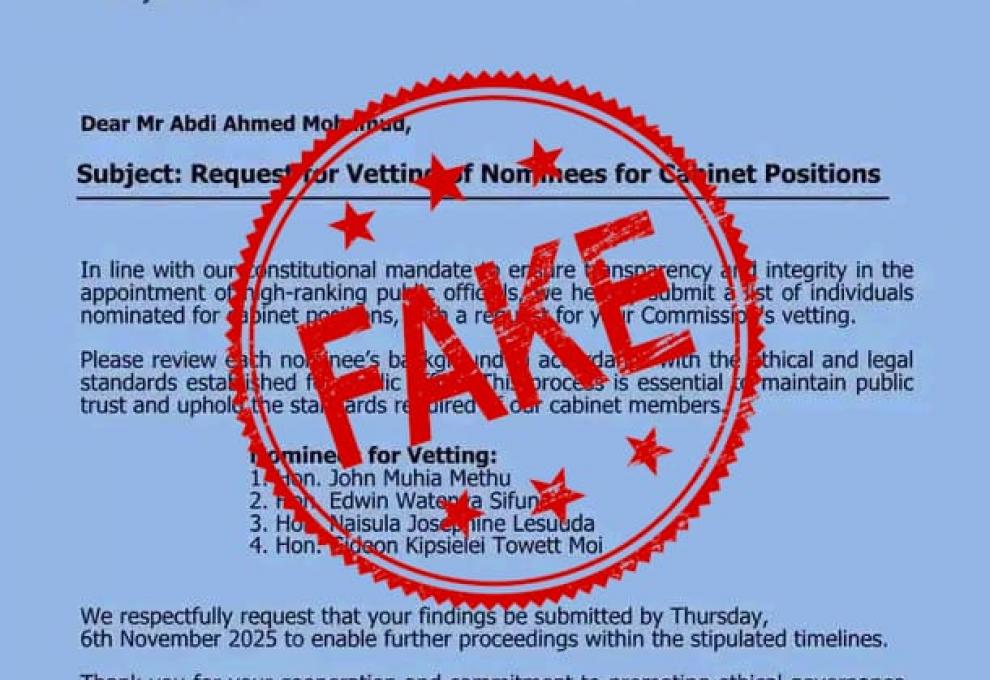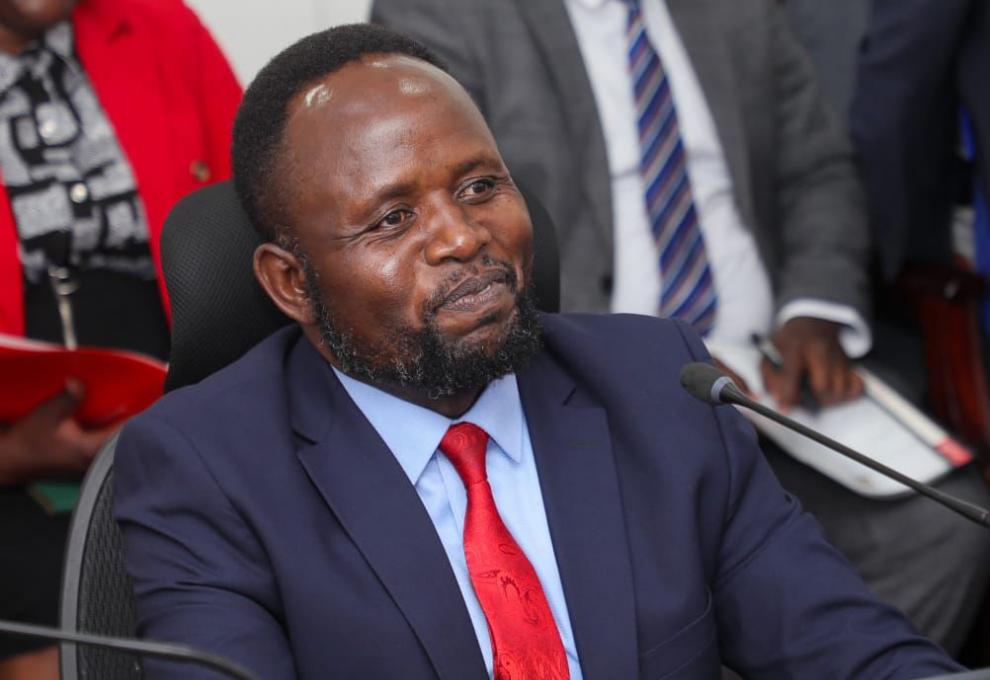Allocation of More Resources to the Auditor General’s Office, key to success in the Fight against Graft- Speaker Muturi
The Speaker of the National Assembly has called on the Treasury and the Budget and Appropriations Committee to consider allocating more resources to the Office of the Auditor General, a necessary shot in the arm that would aid on the war against the graft scourge. Speaking when he met officials from Transparency International, Kenya led by the Chairperson, Ms. Bernadette Musundi, Speaker Muturi noted that the Auditor General’s offices has way too little resources both financial and human, to effectively audit the many parastatals and government agencies whose financial accounts they examine. “ The law allows the Auditor General’s office to outsource for auditors, but the outsourced auditors have been giving a clean bill of health to the same government agencies and parastatals from which we are now seeing people being prosecuted in court”, he noted.
On their part, Ms. Musundi and her team called upon Parliament to address the existing legislative gaps that are hindering success in the fight against corruption. They lauded the Speaker on his move to invite investigative agencies to conduct a probe on the allegations against some Members of Parliament during the House deliberations on the Report on the Sugar Probe in the Country, recently.
Congratulating the Speaker on his election as the Chairperson, Executive Committee of the Commonwealth Parliamentary Association, Africa Region, as well as the Chair of the African Parliamentarians Network against Corruption, they noted that Kenya now has an opportunity to inspire integrity on how African Parliaments operate and urged Parliament to take advantage of the current goodwill to fight graft, to rid Kenya off the vice once and for all. “Parliament has a great role to play in this fight, and thus there’s need to look at the issues that give Parliament a bad name”, Musundi stated. They also lauded the National Assembly for rejecting the nomination of Dr. Ben Chumo, for the position of the Chairperson, the Salaries and Remuneration Commission, at a time when he was facing charges against graft in Court, but reiterated the need to address the identified gaps during that process, by way of enacting legislation.
They cited the Beneficial Ownership Regulations contained in the Company’s Act and the Proceeds of Crime and Money Laundering legislation, as some of the areas that Parliament should address. They further submitted that at the London Anti-Corruption Summit in 2016, the then Attorney General on behalf of Government, undertook to ensure the development of an open and accessible register of all Companies that do business with government, which is yet to happen. They also noted that there was need to finalize the regulations giving effect to the Campaign Financing Act, noting that time was fast moving towards the 2022, General elections.
Noting too that professional bodies have a role to play in the fight against graft, the Executive Director, Mr. Samuel Kimeu, urged parliament to rein on the professional enabler of corruption through appropriate legislation. On this front, the Speaker took issue with the legal fraternity for being the biggest impediment to the waged war on graft. He noted that lawyers have in the past been taking cover to abet the vice, under the guise of Client-Advocate confidentiality regulation. He expressed optimism that when amendments to the Proceeds of Crime and Money Laundering Act, come up for consideration in the House, Members will vote to regulate advocates in that regard. The proposal which seeks to instil discipline among professions who have been enabling the vice thus watering down the fight against graft, is currently before the House for consideration.
Speaking during the consultative forum, the Clerk of the National Assembly, Mr. Michael Sialai welcomed the offer by Transparency International to offer technical capacity to Parliament, and urged them to work with relevant Committees of Parliament, especially in entrenching a framework for public participation.
















